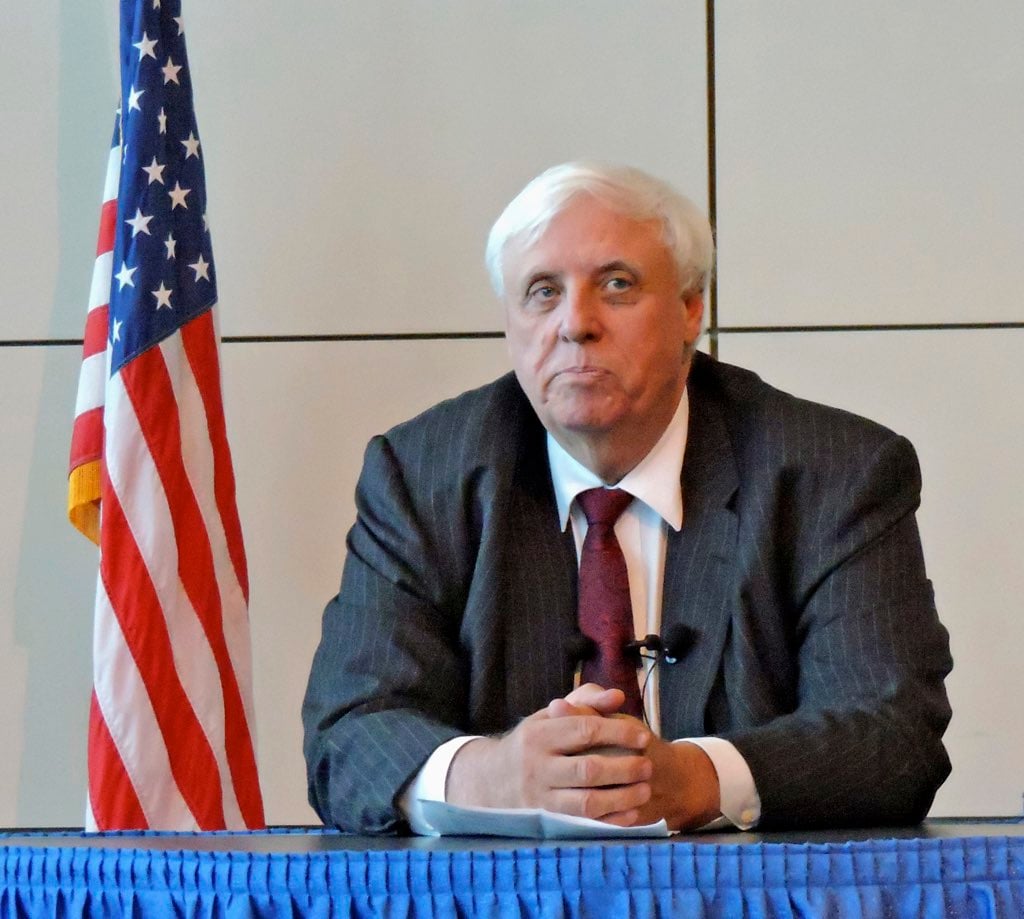Earlier today, the New York Times’s Jonathan Martin broke the news that West Virginia Governor Jim Justice will announce that he’s leaving the Democratic Party tonight during President Trump‘s campaign rally in Huntington. Trump had teased a “big announcement” at the gathering, and Justice’s return to the Republican Party is presumably it.
Justice’s move will reduce the number of Democratic governors in the country to a mere 15, leaving Republicans in charge of more states at any point since 1922.
It’s easy to read this as an incredible boon to the GOP. On paper, it certainly lends fodder to a notion that, despite the chaos roiling the West Wing, the gridlock haunting a Congress dominated by Republicans, the party is in stronger shape than ever. Expect Trump to play this up when he and Justice take the stage in Huntington.
But let’s dispense with one fiction first: Jim Justice did not have a come-to-Jesus moment about the fruits of conservative ideology. He does not suddenly believe, for instance, that pumping hordes of taxpayer dollars into a state infrastructure and road revitalization plan—his main crusade since taking office—is, actually, a case of big government getting in the way of private development.
No, Justice is just really, really good friends with Eric Trump.
He told me this back in December, when I interviewed him on the Greenbrier East high school basketball court as he coached the women’s team. “We are great friends, great friends with the [Trump] family,” he said. “I’m probably closer to Eric than I am with Donald, though.”
Justice told me about the time a-year-and-a-half ago when he and Eric piled into Justice’s black Suburban and traversed the mountains behind the Greenbrier, the opulent and historic resort Justice bought in 2009.
“Eric loves to hunt and fish and I do, too,” Justice said. “So we’re back there, and I blew a tire. And then he was underneath the car changing the tire!” Justice was impressed, he said, that someone of Eric’s privileged upbringing still knew how to hunker down and do that.
“We talk all the time,” Justice continued. He said that they texted all through election night last November, including about 2 AM, just before Trump was announced the victor. “We just talked about the fact that there were so many things we could do together to create jobs and create opportunity for West Virginia. Donald really liked the people when he was here and all that stuff. He knows the shape West Virginia is in, and we’ve got to have jobs. For crying-out-loud, lots of jobs. He knows what a beautiful place this is.”
Ultimately, Justice told me that he and Trump are “very similar in a lot of ways.”
Which is to say that Justice likes Trump—it’s not that he’s all that interested in helping the Republican Party thrive. Indeed, Justice had been a Republican for up until a year or so before the last Democratic gubernatorial primary in West Virginia. (There were whispers at the time that he’d switched because he thought it’d be easier to beat the Democratic field than run for the GOP’s nomination, for which Bill Cole, then state-senate president, was a lock.) Justice has also been registered before as an independent. Trump’s own political identification has been just as slippery over the years.
So don’t expect a flood of suddenly small-government proposals from Justice in light of his most-recent party affiliation, or an enthusiastic backer of conservatives in Congress. Justice’s allegiance with the GOP has as much to do with ideology as does Trump’s—which is to say, not very much at all. And should Trump decide tomorrow to join the Mountain Party, don’t be surprised if Justice follows him.




















